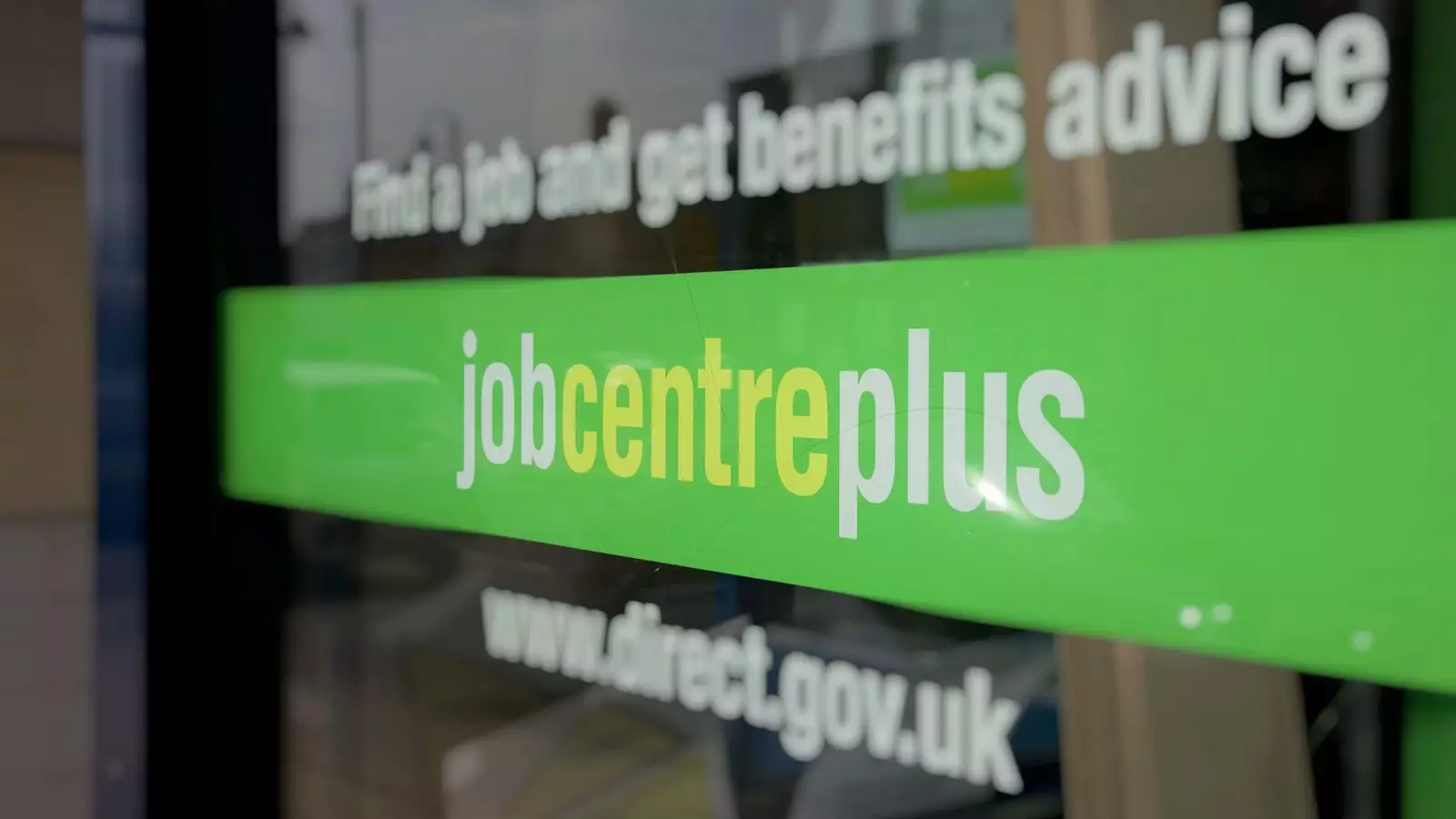The recent statistics released by the Office for National Statistics (ONS) paint a grim picture of the UK’s job market, with the unemployment rate rising to 4.6% in April—a figure not seen since July 2021. This uptick is alarming, especially given that just a month prior, the rate stood at 4.5%. The number of unemployed individuals now exceeds 1.6 million, a shocking testament to the fragile state of the economy. With the continued fallout from tax increases for businesses introduced in April, the situation has evolved into a critical concern for both workers and policymakers alike.
The political landscape should be reeling following this announcement. A 0.1% rise may seem negligible at first glance, but it represents a broader deterioration in employment circumstances. The implications are dire; it suggests a lack of job security and employment opportunities, especially as the economy grapples with the repercussions of the budgetary policies that aimed to secure long-term fiscal health. Yet, in response, we hear a chorus of bureaucracy and diluted reassurances, rather than decisive action.
The Burden of Budgetary Hikes
The ONS figures also highlighted a staggering loss in payrolled employment, with 109,000 positions evaporating in May—the steepest drop in five years. This alarming trend starkly contrasts with the government’s rhetoric around economic recovery. Reports describing businesses holding back on recruitment speak volumes about the palpable fear that grips the corporate sector. Many firms, overwhelmed by rising costs due to increased national insurance contributions and wages, are opting for caution rather than growth.
It’s undeniable that the government’s tax policy aimed to address a £22 billion deficit inherited from the previous administration. Yet, the current administration’s failure to anticipate the subsequent negative impact on employment is astonishing and cannot be overstated. Instead of generating sustainable growth, these tax hikes have morphed into a double-edged sword, leading to substantial job losses and wage stagnation, stifling economic momentum at a time when it is needed most.
Wages and Inflation: An Imbalanced Equation
Despite arguments from government officials that wage growth has outpaced inflation, the reality for many workers is starkly different. The ONS recorded average weekly earnings at 5.2% year on year—a decline from previous figures—while inflation hovers at 3.5%. For a significant segment of the population, this disparity signals a shrinking real income, undermining consumer power and dampening the overall economic outlook.
Strikingly, the Chancellor’s rhetoric of job creation rings hollow when juxtaposed with the reflections of workers experiencing decreased purchasing power day by day. Workers are not merely statistics; they are families grappling with the increasing costs of living while seeing their wages merely plateau at best. The government’s triumphalist claims of record high economic activity resonate as sheer dissonance, as many experience an economic landscape that feels increasingly hostile and inequitable.
Government Response: A Mixed Bag of Emotion and Action
The government’s response has been perplexing at best. Employment Minister Alison McGovern’s assertions regarding the success of their initiatives seem detached from the harsh realities faced by everyday citizens. Promoting a framework of increased training and the Jobs and Careers Service may sound progressive, yet these once-promising tools risk being misplaced in a context where existing jobs are disappearing at an alarming rate.
What the UK requires now is not only an array of promised services but tangible action to stabilize the job market and stem the tide of unemployment. Waiting on the sidelines for economic conditions to improve while businesses continue to falter is not a viable strategy. The resilience of the populace paired with a government that genuinely listens and responds to their needs could navigate the UK through these turbulent waters with a renewed sense of hope and opportunity.
The current labour market crisis demands that leaders step beyond piecemeal solutions, instead embracing a coordinated and aggressive approach to stimulate job growth. Until comprehensive strategies are implemented, and wrongs are righted, the country will continue to teeter on the precipice of further economic distress, exposing workers to the dark underbelly of a government that boldly claims progress while allowing stagnation to reign.

